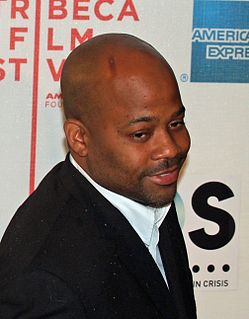A Quote by Fred DeLuca
If you have company-owned stores, you make 100 percent of the profit from each one, but you have less entrepreneurial spirit.
Related Quotes
In Harlem, for instance, all of the stores are owned by white people, all of the buildings are owned by white people. The black people are just there - paying rent, buying the groceries; but they don't own the stores, clothing stores, food stores, any kind of stores; don't even own the homes that they live in. They are all owned by outsiders, and for these run-down apartment dwellings, the black man in Harlem pays more money than the man down in the rich Park Avenue section.
I dismiss personal profit and focus exclusively on people and planet. That's what I call social business: a nondividend company dedicated to solving human problems. You can go all the way, forgetting about personal profit, being single-minded about solving problems. The company makes profit, but profit stays with the company.
When you're in a start-up, the first ten people will determine whether the company succeeds or not. Each is 10 percent of the company. So why wouldn't you take as much time as necessary to find all the A players? If three were not so great, why would you want a company where 30 percent of your people are not so great? A small company depends on great people much more than a big company does.
I wouldn't want to manufacture cigarettes. But if I owned - we do own Costco. Do they sell them? Yes. So I don't have a problem owning stock in that. But I just wouldn't want to - I wouldn't want to do it myself. I basically think, if anything is sufficiently antisocial, society should do something about it. But that's a separate question. But - and I don't think there's any company that I have seen that's 100 percent pure.
Capital does not 'beget profit' as Marx thought. The capital goods as such are dead things that in themselves do not accomplish anything. If they are utilized according to a good idea, profit results. If they are utilized according to a mistaken idea, no profit or losses result. It is the entrepreneurial decision that creates either profit or loss.
































